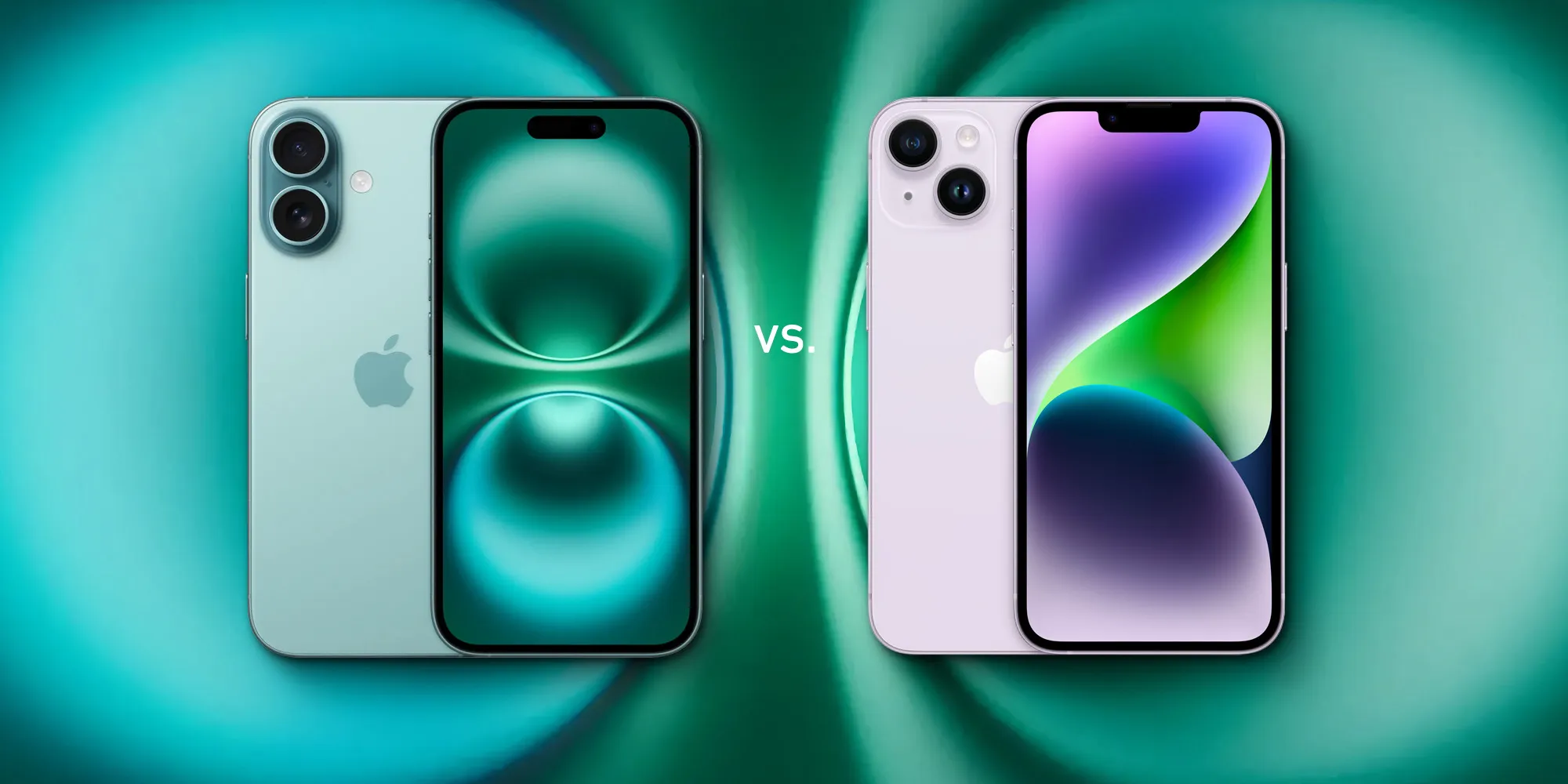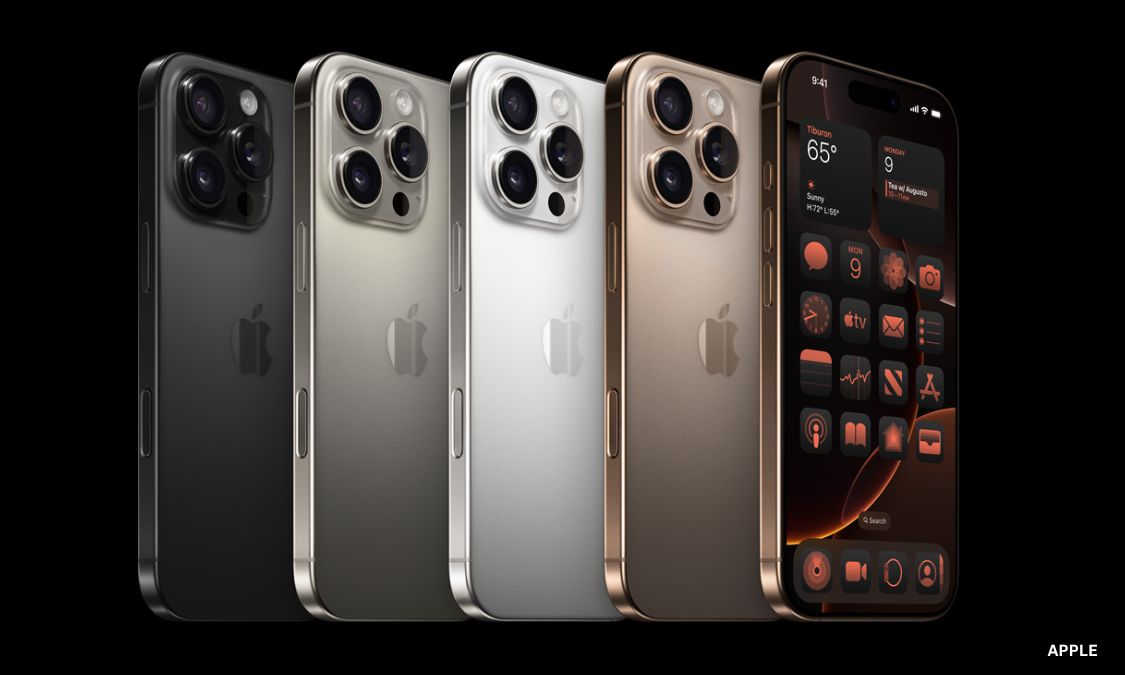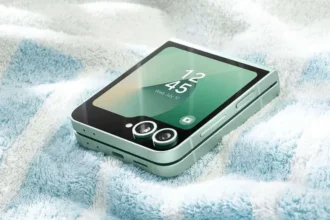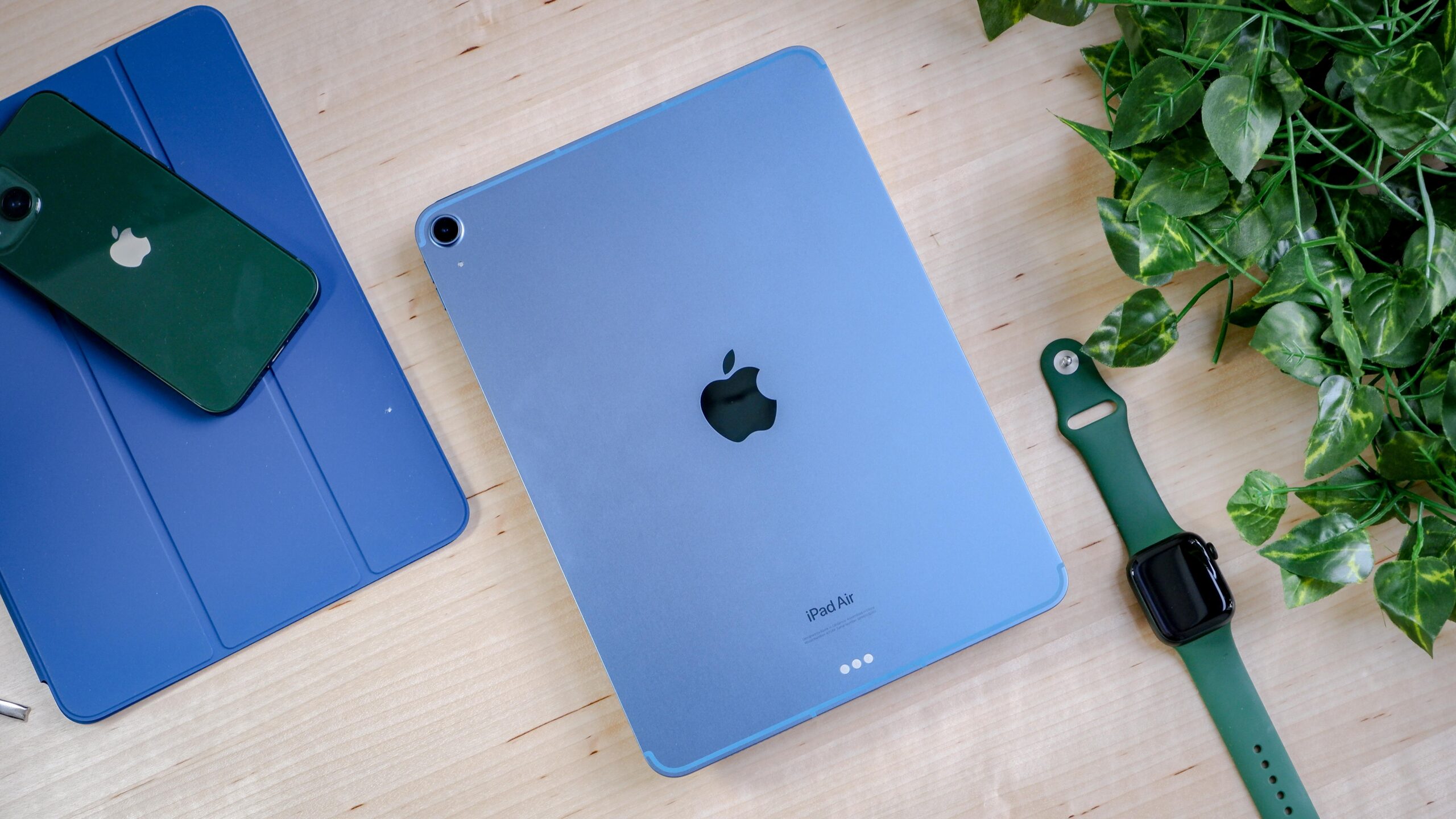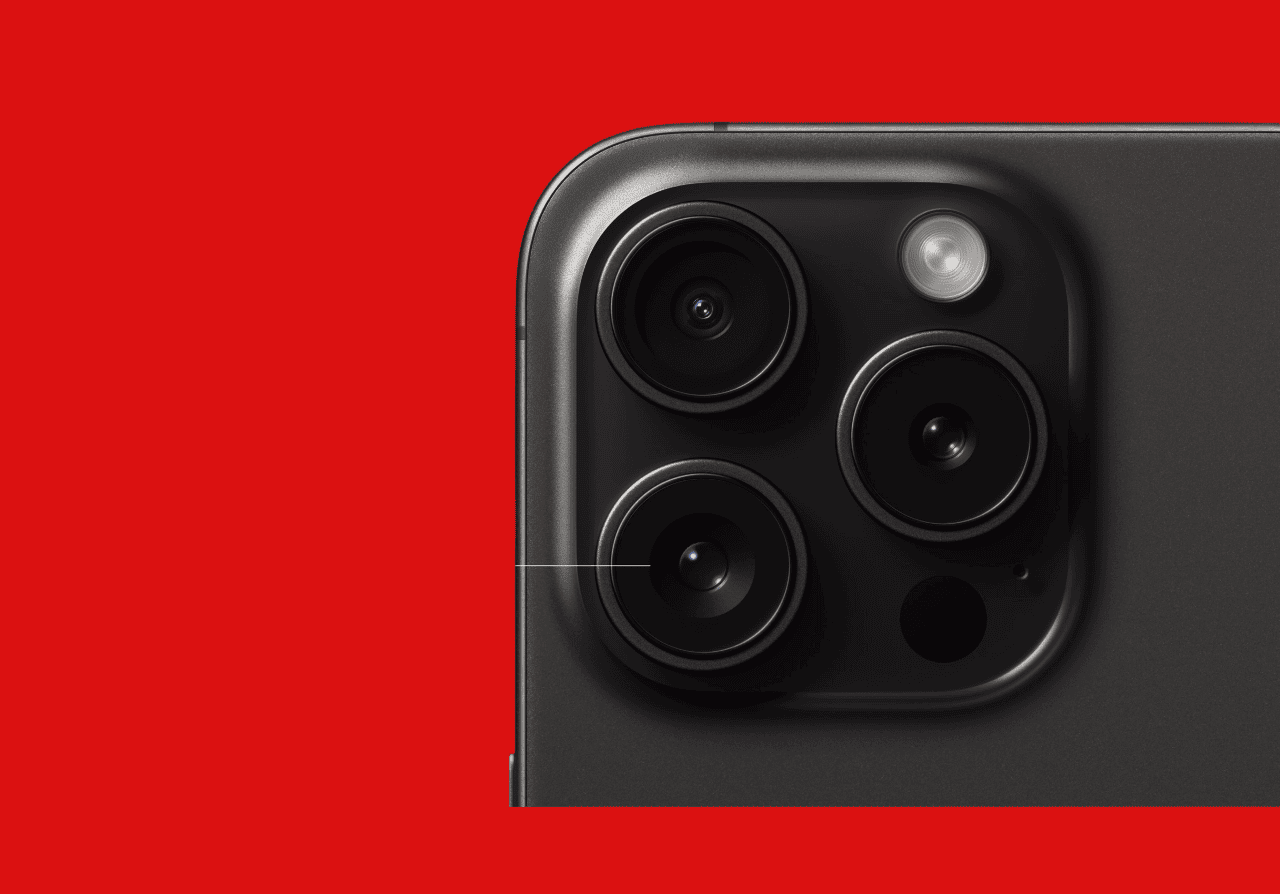In 2024, Apple’s new iPhone lineup includes the iPhone 16, a model that boasts impressive features compared to the iPhone 14. But is it really worth upgrading? As someone who has been following Apple’s smartphone evolution for years, I’ve had the opportunity to use both the iPhone 14 and iPhone 16, and I want to share my thoughts on the differences, the enhancements, and whether upgrading from the iPhone 14 to the iPhone 16 is worth it. Let’s dive into the nitty-gritty of what’s changed between these two models and see if the upgrade is right for you.
The iPhone 14, released in 2022, was a solid device with notable upgrades over its predecessor, including improved cameras, better battery life, and the A15 Bionic chip. I personally loved how the iPhone 14 felt in my hand—compact yet powerful. However, two years later, the iPhone 16 has arrived with some truly game-changing features. Apple’s improvements this year have focused on refining the user experience, enhancing performance, and introducing new technologies. But, as always, the decision to upgrade ultimately depends on your current needs and whether those improvements align with your usage patterns.
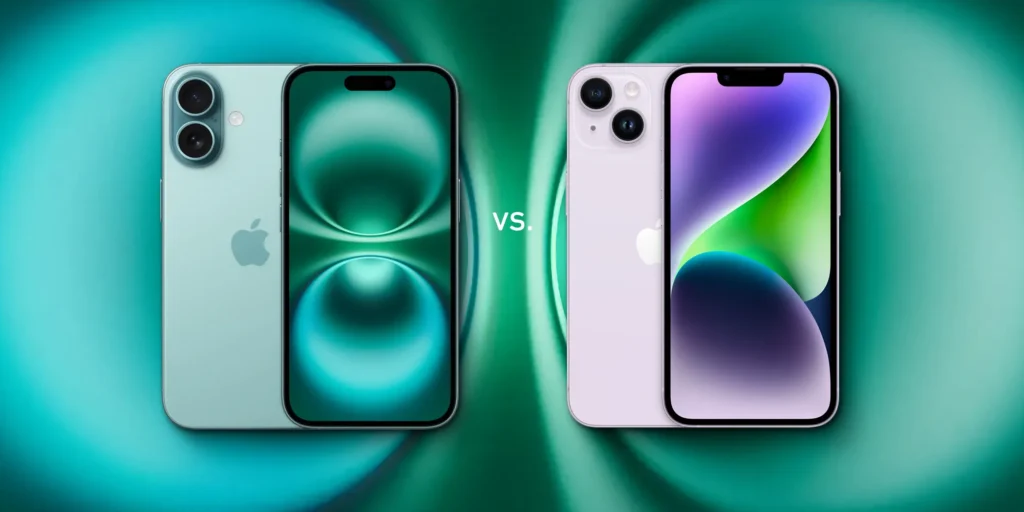
I’ve spoken with friends, colleagues, and even some casual users about whether they’re planning to upgrade, and I’ve noticed some common concerns: Is the iPhone 16’s new camera system worth the extra cost? Does the upgraded performance truly make a difference in day-to-day usage? And should I jump to the iPhone 16, or is my iPhone 14 still good enough? In this guide, I’ll answer all of these questions and more. I’ll walk you through the key differences between the two models and help you make an informed decision based on your personal preferences and usage habits. Let’s break down the specifics of the iPhone 14 versus iPhone 16 in 2024.
Performance and Speed: How Does the iPhone 16 Compare to the iPhone 14?
When it comes to raw performance, the iPhone 16 stands head and shoulders above the iPhone 14. I’ve always been a fan of how smoothly Apple’s iPhones run, but the transition from the iPhone 14’s A15 Bionic chip to the iPhone 16’s A17 Bionic chip is a leap that anyone can feel. For those who demand high performance from their devices, the iPhone 16’s enhanced chip provides a smoother experience when multitasking or using demanding applications.
With the A17 Bionic chip, the iPhone 16 delivers up to 30% faster processing speeds than its predecessor. This means apps load quicker, tasks are handled with greater efficiency, and the phone remains responsive even when you’re juggling multiple tasks. I personally noticed a difference when I switched between apps on both devices—on the iPhone 16, everything was buttery smooth, while the iPhone 14 had the occasional stutter when handling multiple apps or large files.
For gamers or anyone who uses their phone for video editing, music production, or other resource-heavy tasks, the iPhone 16 really shines. I put both phones through their paces by playing a high-definition game like Call of Duty Mobile and editing a few 4K video clips. The iPhone 16 handled both tasks with remarkable ease, while the iPhone 14 showed some signs of lag during extended gaming sessions or while applying heavy edits.
However, if your phone usage is more casual—mainly texting, browsing, and light social media—the iPhone 14 is still perfectly fine for everyday tasks. It’s fast enough to handle those activities without issue, and you might not notice the extra speed of the iPhone 16. But if you’re someone who likes to future-proof their devices or uses apps that demand more processing power, the iPhone 16 would be a smart choice.
Camera: Is the Upgrade to iPhone 16’s Camera System Worth It?
Apple has always placed a premium on its camera systems, and with the iPhone 16, they’ve raised the bar even higher. When I first tested the iPhone 16’s camera, I was impressed by how much more natural the photos looked compared to the iPhone 14. The new iPhone features a more advanced sensor, allowing for better low-light performance, sharper details, and more vibrant colors. If you’re someone who loves to take photos, this is probably the area where you’ll see the biggest difference.
One of the most exciting upgrades to the iPhone 16’s camera system is its enhanced Night Mode and Optical Zoom. In my experience, the Night Mode is dramatically better—photos taken in low light come out with clearer details and less noise. I remember taking a picture of the city skyline at night with both phones, and while the iPhone 14 produced a decent shot, it couldn’t match the vibrancy and clarity of the iPhone 16’s image. The zoom capabilities have also improved, making it easier to capture distant subjects without compromising on detail.
For video enthusiasts, the iPhone 16 also supports ProRAW and ProRes video recording, features that are geared toward professional photographers and videographers. I don’t personally do much professional video work, but I can see how these upgrades would appeal to content creators who want the best quality possible. If you’re serious about photography or creating content, the iPhone 16’s camera system is definitely worth considering.
That said, if you’re someone who only uses their iPhone’s camera for casual snaps, selfies, or social media posts, the iPhone 14’s camera system will still meet your needs. It may not have all the bells and whistles of the iPhone 16, but it’s still capable of capturing stunning images in most environments.
Battery Life: Does the iPhone 16 Last Longer Than the iPhone 14?
In terms of battery life, the iPhone 16 has the upper hand, though not by a huge margin. The iPhone 16’s combination of the more efficient A17 chip and improved power management allows it to stretch battery life further compared to the iPhone 14. Apple claims the iPhone 16 offers up to 20 hours of video playback, an hour more than the iPhone 14’s 19 hours.
I conducted a few battery tests where I used both devices for the same tasks—video streaming, social media browsing, and some light gaming. The iPhone 16 consistently lasted longer, especially during video streaming, where it held up better during prolonged use. If you’re a heavy user like me, this extra battery life is a welcome improvement, especially when you’re traveling or away from a charger for long periods.
That said, the iPhone 14 is no slouch in the battery department either. For the average user, the iPhone 14’s battery life should last throughout the day with moderate use. But if you’re someone who pushes their device hard—whether through gaming, streaming, or working with power-hungry apps—the iPhone 16’s battery life could make a noticeable difference. For anyone who has found themselves scrambling for a charger mid-day with the iPhone 14, the iPhone 16 will be an upgrade you’ll appreciate.
Design: Is the iPhone 16 Really That Different From the iPhone 14?
While the iPhone 14’s design was already a hit, Apple has made some subtle tweaks to the iPhone 16’s design that I personally find appealing. The iPhone 16 is slightly thinner and lighter than the iPhone 14, which gives it a more refined feel. The edges are more rounded, and the overall profile feels more ergonomic in my hand, which is something I noticed immediately when switching between the two.
The color options are another area where the iPhone 16 stands out. Apple has introduced new color choices that look sleek and modern. While the iPhone 14 had great color options, the iPhone 16’s finishes seem more sophisticated, offering a slightly different aesthetic for those who want something unique. I personally enjoy the new shades, especially the deep blue and space black.
In terms of durability, both phones are well-built, but the iPhone 16 has slightly improved water resistance, which could be a selling point for anyone prone to spills or accidents. That said, both devices feature Ceramic Shield glass, which offers great protection from drops and scratches.
Should You Upgrade from iPhone 14 to iPhone 16?
Upgrading from the iPhone 14 to the iPhone 16 depends on your priorities. If you’re someone who values performance, cutting-edge camera features, and longer battery life, then the iPhone 16 offers significant improvements over the iPhone 14. The A17 chip is noticeably faster, the camera system is more advanced, and the overall user experience is smoother. The additional battery life also means fewer charging sessions, which is a win in my book.
However, if you’re not a power user or someone who demands the absolute best performance, the iPhone 14 is still a fantastic phone. For everyday tasks like texting, browsing, and taking photos, the iPhone 14 remains more than capable. If your device is still holding up and serving your needs, there’s no rush to upgrade.
Personally, I found that the iPhone 16’s improvements are compelling enough to justify the upgrade if you’re looking for something that’s more future-proof. But if you’re comfortable with your iPhone 14, there’s no need to feel pressured into upgrading just for the sake of it.
Conclusion: Is the iPhone 16 Worth It Over the iPhone 14?
In conclusion, upgrading from the iPhone 14 to the iPhone 16 in 2024 is a decision that comes down to what you need in a phone. If you’re looking for a faster device with a superior camera, longer battery life, and the latest design, the iPhone 16 will be a worthy upgrade. It’s more powerful, has a better camera system, and is built for future-proofing your mobile experience. However, if your iPhone 14 still meets your needs and you don’t feel compelled by the new features, sticking with the iPhone 14 is completely reasonable.
For me, the iPhone 16 felt like a necessary upgrade, especially for the performance boost and camera improvements. But for someone who doesn’t push their phone to the limit, the iPhone 14 will still offer great value for a few more years. It’s all about balancing your budget and your priorities. Whether you choose to upgrade now or hold on a bit longer, both phones are excellent in their own right.

